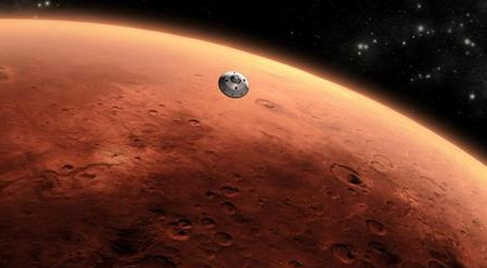As NASA envisioned that man will not touch the Martian surface 15 years from now, a scientist declared there will be no landing on Mars starting on 2030 and not in another 50 years.
Dr. Orfeu Bertolami of the University of Porto in Portugal told the Daily Mail that man is "a long way from reaching Mars." Such mission is just "demanding and impossible," the theoretical physicist declared, adding that "I see no way of reaching Mars in five decades."
As it stands, the mission to land on Mars is hampered by too many hurdles, chief among them is the technology to be used in travelling back and forth to the Red Planet and the financial resources. Dr. Bertolami also reminded that there are just too many unknowns to undertake such a risky voyage.
The scientist is not alone. Mary Lynne Dittmar, an aerospace expert based in Washington, D.C. concurred that getting a team of astronauts to Mars and getting them back alive and well is a lot harder than it looks.
"The distances that are involved and the complexities that are involved in going and staying there are really enormous," Dittmar was reported by NPR.org as saying. The mission entails complicated logistical concerns - from preparation, to launch and the actual landing.
Even when the mission achieves success, Dittmar asked: Will the first Martians survive the harsh environment? She noted that the planet has a huge dust problem, which adds up to the yet unseen mission complications that Dr. Bertolami is warning about.
Dr. Bertolami explained what while propulsion technologies - chemical, electrical and nuclear - are available for man to rocket his way to Mars, the core objective of making the entire trip viable, or shortening it that travellers can survive physically and psychologically, remains elusive. The forecasted three-year journey, most of which involves protracted waiting periods, will be too punishing, the doctor added.
The best option available even for NASA is to revisit the moon, perhaps to perfect extended space travel. "I think it would be extremely useful to start with habitats at the moon," Dr. Bertolami said.
The physicist explained that improving on how we get to the moon then back to earth will prepare to take on Mars and beyond.
NASA has a number of blueprints or options that someday will allow man to eventually conquer Mars and all of which include the moon as the halfway station to land on the Red Planet then get back to Earth.



























